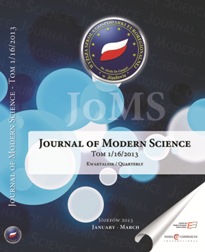Dlaczego wykształcenie wyższe jest ważniejsze dla kobiet niż dla mężczyzn w XXI wieku?
Why is tertiary education more important for women in the twenty first century?
Author(s): Anna Odrowąż-CoatesSubject(s): Gender Studies, Education, Higher Education , Sociology of Education
Published by: Wydawnictwo Akademii Nauk Stosowanych WSGE im. A. De Gasperi w Józefowie
Keywords: tertiary education; life course; life expectancy; social conditioning; identity;
Summary/Abstract: The author discusses the key factors pertaining to the education levels of men and women, related to their standards of life and well being, in the context of lifelong learning and life expectancy. Firstly, tertiary education is argued to be a liberating factor for women in culturally biased gender power relations. Secondly, higher education is perceived not only as emancipating for women but also as an essential balancing factor, which provides good levels of social security and financial stability, particularly in the older years, contributing to the future elimination of the feminisation of poverty. It is argued that the effects of female education on the cultural capital of future generations, lead to further societal advancement. The benefits of higher education in terms of the employability of women, equips them with greater degree of independence, pension and self-esteem. These factors allow women to thrive in the third-age and prevent them from social exclusion. Tertiary education and the employment of women increase household income, stimulating economic growth and decrease the number of people dependant on state benefits. In summary, this paper provides an insight into why higher education can be viewed as more important for women than for men in the XXI century.
Journal: Journal of Modern Science
- Issue Year: 22/2014
- Issue No: 3
- Page Range: 55-71
- Page Count: 17
- Language: English

